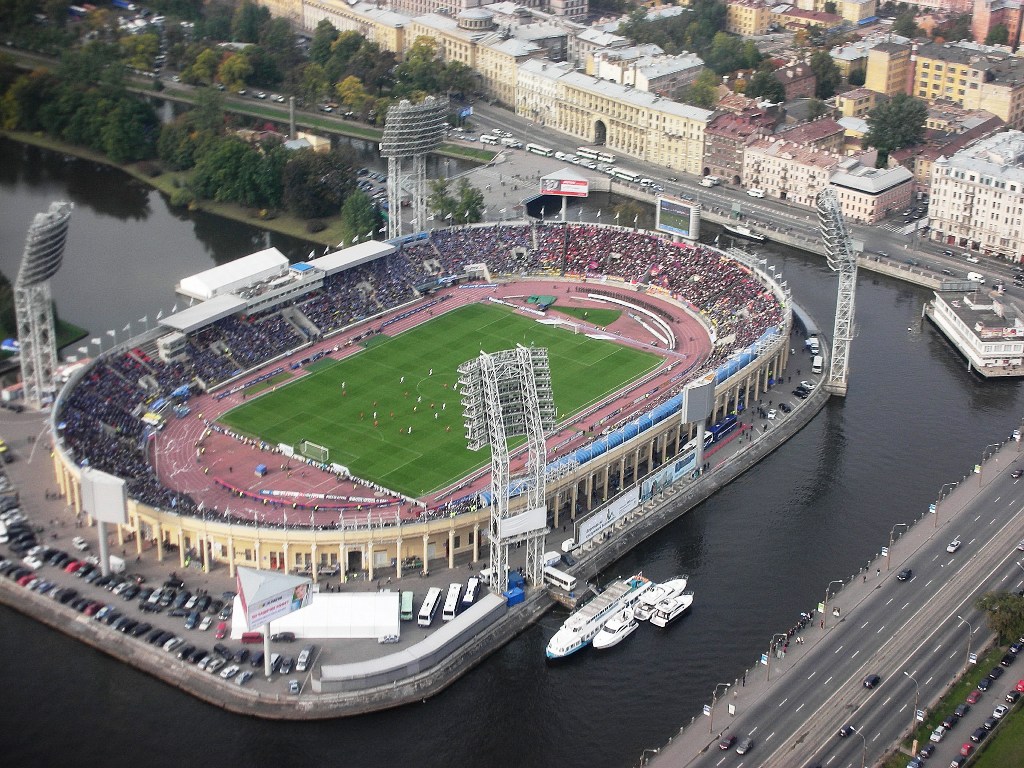2018 bid: Don't expect, England
Many commentators in the UK feel that England's bid to host the 2018 World Cup is a given. A smile from Beckham and it's job done. Or is it? With big plans and even bigger backing, Russian football is moving forward. IBWM welcomes Domm Norris.
The Russian Premier League is a thriving competition which, over the past decade, has gained the respect of many of its European counterparts. The introduction of vast amounts of wealth through private ownership and the consequent importing of promising South American talent has created a means through which progress can be continually made.
The rise of clubs from outside the traditional footballing infrastructure of Moscow has also helped develop an exciting league structure as Zenit St. Petersburg and Rubin Kazan regularly look to break the stranglehold held by the capital, while this season has also seen FC Rostov and Spartak Nalchik find themselves competing for the Europa League positions.

Zenit's Petrovsky Stadium
While clubs from outside the borders of Moscow have managed to find themselves vast resources and competitive squads, there is still a distinct difference between the infrastructure of clubs from outside the Russian capital to those within it. Zenit, for example, play their home fixtures in the Petrovsky Stadium which is not a purpose built football complex, which is epitomised by the large running track that circles the pitch and the shallow depth of the 360 degree stand. In comparison CSKA Moscow ply their trade in the Arena Khimki which, at around 20,000 capacity, is a similar size to the Petrovsky Stadium but is a purpose built football stadium which was opened as recently as 2008. It is this separation of infrastructure that places the clubs such as Zenit in a more difficult position to maintain sustained development.

CSKA Moscow's Khimki Stadium
The Russian bid for the 2018 World Cup threatens to transform and bridge the gap that has been apparent for many years. The plan to develop stadia in 13 different host cities, including Moscow, could well mean that by the end of the World Cup the footballing infrastructure of the nation has been transformed and with it the Russian Premier League will be able to flourish even further. The trend of the World Cup being held in nation’s such as South Africa and Brazil where stadia threaten to become white elephants once the festivities have come to an end have no such issue where Russia is concerned. Club’s such as Zenit, Rubin Kazan, Rostov and Krylia Sovetov will all reap the benefits of a successful bid while various First Division clubs will also find themselves enjoying the fruits of the first Russian World Cup.

The stunning new home of Zenit St. Petersburg
The plans put forth by the Russian bid committee for the new stadium that will be home to Zenit St Petersburg are hugely impressive and are a signal of intent, not just from the World Cup’s point of view but also from the domestic game. The stadium, which has been tentatively under construction since 2007, will hold around 67,000 spectators and will be the host of a semi final fixture if the World Cup reaches Russian soil in 2018. It will also be the home to one of the world’s most impressive footballing facilities, which borrows heavily from the techniques used in Gelsenkirchen, Germany where the Veltins-Arena uses a two pitch system whereby it is possible to slide a different pitch out of the stadium to be replaced by another. The technique could be revolutionary for Russian football which has often controversially turned to artificial surfaces as a means of maintaining quality pitches in spite of the often difficult weather conditions. The stadium will also have the protection of a retractable roof which, again, should assist ground staff in ensuring that Zenit consistently play upon the finest pitches in the country. The new stadium would also provide Zenit with an even greater carrot with which to entice promising footballing talents to the ever expanding Russian footballing culture. With continued investment, success and development Zenit could well become one European football’s true giants in the coming years.
Domm is site editor for the excellent football ramblings, please visit!